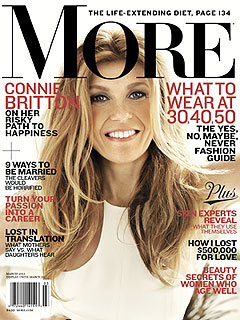Finance Minister Palaniappan Chidambaram presented the Union budget in Parliament on Thursday morning. Reactions were mixed from analysts who felt that while the finance minister had delivered a satisfactory budget given the country’s economic climate, more could have been done to attract foreign investment.
Prime Minister Manmohan Singh, speaking with Doordarshan News:
Given the challenges facing our economy, the finance minister has done a commendable job. India needs to create jobs for our growing labor force to the extent of about 10 million persons every year. To do that, we need to accelerate the tempo of our growth. We need, as the 12th Five-Year Plan has mentioned eloquently, a growth rate of about 8 percent. This is a growth rate which is consistent with our underlying potential. We have to get there. Although this is a difficult journey — it cannot be accomplished in a single year – but the finance minister has taken important steps to reverse the pessimistic view with regard to investment climate, with regard to the growth potential and possibilities of our economy.
The finance minister has laid out a road map. There is plenty of food for every ministry to chew upon. And each one of our ministries has to ask itself this question: If India needs an 8 percent growth rate, growth which is at the same time inclusive and sustainable, what is it that each ministry should do? The finance minister has, I think, mentioned these challenges. It is up to the collective wisdom of my Council of Ministers to convert these challenges into opportunities to accelerate the tempo of growth, to make it more inclusive, to make it more sustainable.
Dinesh Thakkar, chairman and managing director at Angel Broking in Mumbai:
The government’s reform momentum had been so strong since September that there were expectations of some exciting measures in the budget too. That was not the case, but it does not mean the budget was a disappointment. The finance minister has been seriously committed to bringing down the fiscal deficit, and he has delivered on that front, as he did not announce any major populist measure and largely maintained stability in tax policies, save for some tweaking for higher income brackets and corporates. In my view, there were no major positive or negative triggers for the markets or any particular sectors, and I think what the market will look forward to is the reform agenda being continued by the government outside the budget, in the coming Parliament sessions, for which the momentum still looks very much on track.
Anuj Puri, chairman and country head of Jones Lang LaSalle India:
We did not expect this budget to be a game-changer. The realities of the Indian economic situation need to viewed in context with the factors that drive it, not least of all the global economic situation. There is no escaping the fact that the business which comes to India from the European Union and the U.S. has a trickle-down effect on key economic drivers in India, and the Finance Ministry does not control these factors. The Union budget can only hope to address factors within its control.
This was a moderately encouraging budget in general, but tepid for the Indian real estate sector. There has been no proposal on certain key expectations from the real estate sector. These include implementation of the real estate regulator and the Land Acquisition Act. All said and done, Indian real estate will continue to struggle with its larger hurdles. While the affordable housing category has been rightly given due attention, aspects relating to improved transparency and corporate governance within the sector have been largely ignored.
That said, the budget has shown commitment to improving communication on taxation and regulatory policies. This should give more comfort to offshore real estate investors who have been bogged down by the political inertia and therefore unsure of India as an investment destination in the recent past.
Partha Iyengar, country manager for research, India, at Gartner:
The big overarching focus on growth by the finance minister is the fundamental “feel good” factor in this budget. Given the fact that one can argue that a lot of the weakness in the Indian economy is what I call a “sentimental recession,” his strong statement that there is no ground for “doom and gloom” heading into the new year.
The big specific positives of the budget are that he has focused both in terms of the letter and spirit of the budget on the key planks of growth for India and health of every industry, including IT, which is infrastructure, education, skills development and incentives for the growth of domestic manufacturing. Some of the other positive areas are support for entrepreneurship, the M.S.M.E. [micro, small and medium enterprises] sector, both in terms of financial and overall support. The recognition that the overseas “trust deficit” in terms of a comfort level on India’s investment climate has to be addressed is also welcome.
However, the budget is only a directional statement, and the challenge for India historically and even currently is in the execution of the statement of intent outlined in the budget. This has been India’s Achilles’ heel, in that bold pronouncements in the budget never see the light of day or are not implemented as effectively as they can or should be. So it was disappointing to not see any statements on what the government would do to ensure mechanisms and oversight to ensure speedy and efficient implementation of these programs. Overall, a 7/10 score for the budget.
Girish Vanvari, co-head of tax at KPMG:
This budget is along anticipated lines, given the economic scenario in the country. There is a stable tax regime. There is no weird tax introduced; nothing much has been tinkered with. The expenditure outlays of the government have not gone down and so the government is not going to stop spending, which means continued growth.
There is a tax on the super-rich with income above 10 million, but this will only affect about 42,000 people and not impact the larger base. Also, the tax is only a 10 percent surcharge and only effective for one year. In this situation, we have limited choices to manage the fiscal deficit, and the budget is quite good given the situation. It is generally an investor-friendly budget because the crux of this budget is growth. Without growth, the fiscal deficit will not be able to be constrained.
Sujan Hajra, chief economist and executive director at Anand Rathi Financial Services in Mumbai:
Given the macroeconomic climate – slowing growth, stable inflation, high fiscal deficit and current account deficit – this is the best budget that could be rolled out in these circumstances. The overarching priority in this budget is to affect some level of fiscal consolidation, and that has been delivered, having kept the fiscal deficit to 5.2 percent for this year. The other priority for this budget is to induce financial saving and investment, and many measures have been introduced towards that, such as special incentives for over 1 billion rupees investment, a boost to infrastructure investment, particularly in the power and road sector, widening the scope for investing in mutual funds and the inflation index bond.
Despite this being the last full budget before the next election, the budget has largely resisted taking measures of overt populism. The two largely populist measures taken are the Food Security Act and the Direct Benefit Transfer, and none of these involve any major outlay. The subsidy component of the budget has been reduced rather than increased.
Also there has been some kind of benefit for the bottom of the pyramid with tax benefits for the lowest tax bracket and benefits on housing interest payment for the lower end of the spectrum.
Nobody can term this as a dream budget, but it is trying to address macro concerns and bring about some sort of revival in growth.
Chandrajit Banerjee, director general of the Confederation of India Industry, a trade group:
It is a very well thought through and analytical budget and not a political budget. It is a growth-oriented budget, where the focus on investment has been kept high.
Jaijit Bhattacharya, director for South Asia at Hewlett-Packard:
The IT and electronics manufacturing industry was looking forward to budgetary support to the government’s stated policy of promoting IT & electronics manufacturing in India. But this has not been done in this budget.
Dipen Shah, head of private client group, research, Kotak Securities:
The finance minister has projected a fiscal deficit in line with what he had promised, and it is far better than what the situation was when he had come in. To that extent, he has presented a responsible budget. We believe that the budget focuses rightly on higher investments, which can lead to better growth rates in the future. Several initiatives have been announced in the infrastructure sector. Followup action, in terms of removing infrastructure bottlenecks, will be needed and will go a long way in helping the government achieve the growth targets.
Nishith Desai, managing partner at Nishith Desai Associates, a research-based international law firm:
The budget brings some relief but not much excitement – in particular for foreign investors. It was expected that the finance minister would introduce new tax rates and this did not happen. We expected that estate duty would be reintroduced and this was not done. It was expected that there would be a whole host of new indirect taxes, and that was not done to a large extent. Therefore, it was not the draconian budget expected in the current macroeconomic situation. Only the super-rich have been charged a 10 percent surcharge, which is not too much of a burden, in my view.
However, we expected some big bang reforms for bringing foreign investment to India, which did not happen. The finance minister started by saying that foreign investment is “imperative,” but that imperative was soon lost. There was no assurance made to guarantee a stable regulatory environment and that there would not be any more retroactive amendments in general. It was expected that the finance minister would address cases that involve the offshore transfer of shares like Vodafone so that there could be some certainty, but this was not done.
I believe the finance minister will have to present another round of liberalization and reforms to attract foreign investment. I think that he has tried to please everybody, which is not a bad thing. But at the same time, if you look at this from the viewpoint of attracting the foreign investment necessary for growth – that has not happened.











